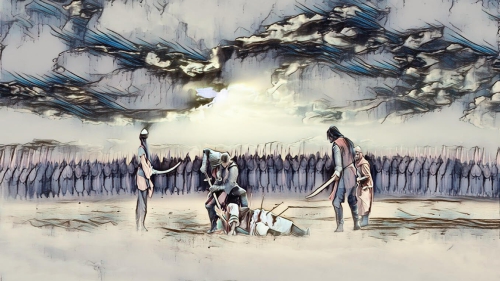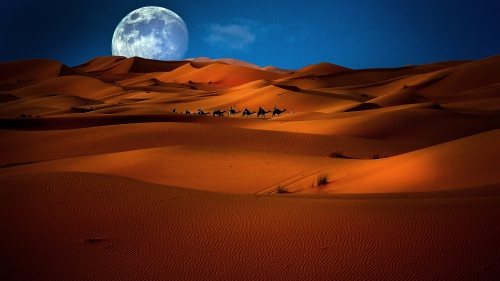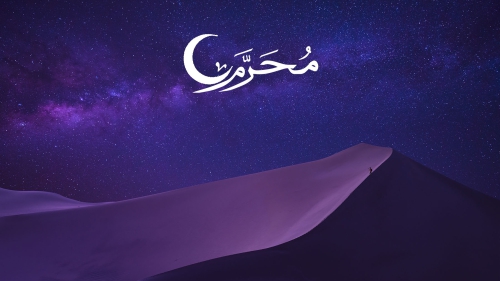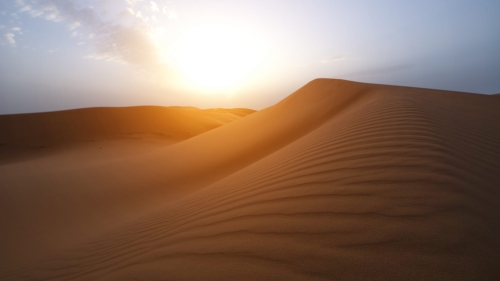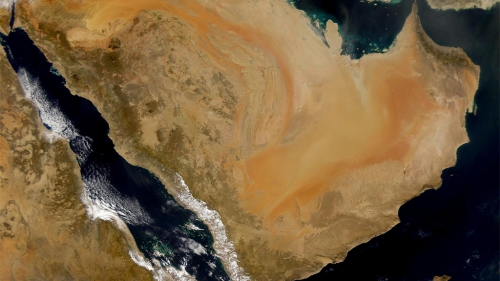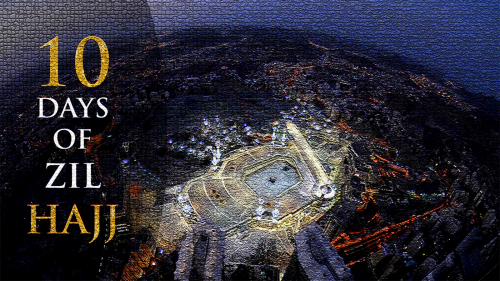How Muslims Helped Jews Celebrate Passover

Thanks to their Muslim neighbors, Jews living in Muslim countries from Morocco in the west to Iran in the east, were able to celebrate their annual Passover liberation from Pharaoh’s bondage, not only spiritually but also physically, according to the religious principle that the celebration should ‘begin with the darkness of oppression and end with the light of freedom and independence.
To understand this statement, non-Jews must know that during the week of Passover (the Feast of Unleavened Bread; celebrated by Reform Jews world wide plus all Jews in the Land of Israel for 7 days, and by Orthodox and Conservative Jews outside of Israel for 8 days) the Torah declares no leaven grain products (of wheat, barley, oats, rye etc.) should be found in Jewish homes:
“Seven days you shall eat unleavened bread, on the first day remove (all) leaven from your houses; for whoever eats anything leavened from the first day until the seventh day, that person shall be cut off from The People of Israel. On the first day you shall have a holy assembly, and another holy assembly on the seventh day; no work at all shall be done on them, except (for) what must be eaten by every person, that alone may be prepared by you. You shall observe the Feast of Unleavened Bread, for on this day I brought your multitudes out of the land of Egypt; so observe this day throughout your generations as a permanent ordinance.”(Exodus 12:15-20)
So how does each Jewish household get rid of all their bags of grain before the first day, and from where do they get bags of grain to start eating after the last day of Passover? You can burn the bags of grain, but that is wasteful.
Or you can give your bags of grain to your non-Jewish neighbors, and get them back after Passover is over: provided you trust your neighbors not to allow the grain to become polluted and impure. In Christian countries, with their long history of persecuting Jews, this solution was rarely ever done.
In Muslim countries however, Jews trusted their Muslim neighbors who also carefully observed Halal laws of ritual purity. And this is how a new Jewish holiday developed in recent centuries in North Africa.
It would be a major mistake to judge from the Palestinian-Israeli political conflict in the 20th century that Jewish-Muslim relations have usually been poor. The opposite is true. Prior to the rise of secular, political, nationalism in the 19th century, and the rise of politicized religion within Judaism and Islam in the 20th century, Jewish-Muslim relations were usually characterized by good neighborliness and amity as the North African Jewish celebration of Mimouna (pronounced Meemouna) shows.
The Moroccan Jewish festival of Mimouna, a 24-hour food-centered celebration, begins right after the week of Passover ends. For many centuries, Moroccan Jewish homes were emptied of leavened bread and flour during the week of Passover. At the end of the week of Passover, Jews could eat leavened bread and pastry again.
However, they actually couldn’t because they had emptied their homes of all ordinary flour so there was nothing to bake with. And that is when their Muslim neighbors came in.
Shaul Ben-Simhon, who immigrated to Israel in 1948 at age 18, said that in Morocco the holiday of Passover brought Jews and Muslims together each year. Ben-Simhon recalled the tradition of Arab neighbors bringing flour to his home, so his mother and grandmother could make baked goods. Often this was the same bags of flour that Jews had given to their Muslim neighbors a day prior to the start of Passover, so Jews could rid their homes of leavened flour prior to Passover.
When, after the end of Passover, Muslims came to Jewish homes to return the flour, they were always invited to stay for a few hours and enjoy the soon to be baked goodies.
Thus, Jewish homes were filled with neighbors, friends and family exchanging traditional Arabic blessings of good luck and success while awaiting the laden trays of delicious Mimouna baked goods. The celebration often was repeated the next day with even more pastry and joy.
In Israel, unfortunately, for the first two decades of statehood, the festival was hardly observed at all. “In the early days of the state, we Moroccans were busy with absorption and working hard, often in construction. We didn’t have the energy or self-confidence to celebrate Mimouna,” said Ben-Simhon.
That changed in 1968, when Ben-Simhon, age 38 and a high-ranking official in the Histadrut, Israel’s trade union alliance, organized a public Mimouna celebration in a bid to help the integration of Moroccan immigrants into Israeli society. His effort to raise the community’s morale attracted 300 participants.
The next year, Ben-Simhon moved the celebration to Jerusalem, got then mayor Teddy Kollek's support, and a crowd of 5,000 showed up. This grew into a major celebration in Jerusalem's Sacher Park that today draws over 100,000 people.
This event inspired the revival of Mimouna all across Israel; where Moroccan Jews and Israelis of all ethnic backgrounds flock to smaller public and private celebrations. A special law even requires bosses to grant employees unpaid leave on the day of Mimouna, if they want to carry on celebrations from the previous evening.
Unfortunately, the Orthodox Rabbinical bureaucracy in Israel had long ago arranged for a formal “sale” of all the leavened flour in the state of Israel to a few Arab Muslims or Christians, so the much more personal, private transfer to one's Arab neighbors rarely takes place today in Israel.
Perhaps, a restoration of this part of the Passover tradition will help bring Jews and Arabs in Israel closer together. Ben-Simhon believes that Mimouna promotes unity between families and neighbors. (In Morocco, it was a day when people would also visit each other to end grudges.)
There are several theories regarding how the celebration got the name Mimouna. I think it comes from the Arabic word Amina and the Turkish word Emina that sound similar to the Hebrew word Emunah (faithful).
Indeed, Emin, Emina and Ahmina are names in Turkish and Arabic, meaning a faithful or trusted one. Jews trusted their Muslim neighbors to guard the flour faithfully from becoming impure, and their Muslim neighbors always did just that.
Perhaps the revival of the Jewish-Muslim celebration of Mimouna in Israel could stimulate Muslims and Jews in other parts of the world to reach out to each other and share traditional pastries made from both leaven and unleavened flour.
Passover starts on the evening of April 15, 2022 and ends after sundown on April 22 for all Jews in Israel and for Reform Jews worldwide, and after sundown on April 23 for Orthodox and Conservative Jews outside of Israel.
Wouldn’t it be wonderful if Jewish and Muslim groups or individuals invited each other to break bread together for Mimouna this year and pray together for more “Celebration of Muslim-Jewish Amity.”
If we all can live up to the ideal of Mimouna we will help fulfill the 2700 year old vision of Prophet Isaiah: “In that day there will be a highway from Egypt to Assyria. The Assyrians will go to Egypt, and the Egyptians to Assyria. The Egyptians and Assyrians will worship together. In that day Israel will join a three-party alliance with Egypt and Assyria, a blessing upon the heart. The LORD of Hosts will bless them saying, “Blessed be Egypt My people, Assyria My handiwork, and Israel My inheritance.”…(Isaiah 19:23-5)






